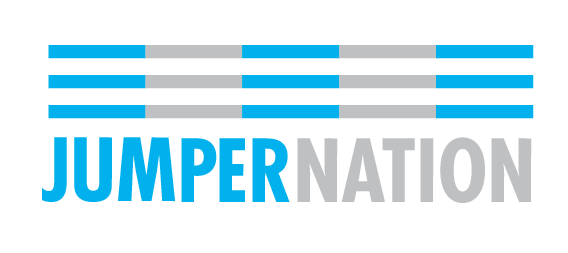Jumper Nation editor Lynn Mueller is, to mince no words, a boss. In addition to being an accomplished jumper of jumps, she is a runner of ultramarathons, conqueror of spreadsheets, and hobby tamer of all things creepy-crawly (her spiders and reptiles make regular guest appearances during our team conference calls).
Lynn is also Korean, and has endured her fair share of racism. She penned an editorial yesterday, Editor’s Reflection: Part of the Greater Community, that is well worth a read. Today, she follows that essay up with a post that is equal parts personal and pragmatic.
We are all on a learning curve here. I know that the events of the past week have shaped, and then reshaped, and then reshaped again, my understanding of the nuances of democracy and equality — and I still have questions. As Kate Samuels wrote in Thursday News & Notes this morning: “Take a moment today to sit with your discomfort over current events. What a privilege it is to get to educate yourself on racism, instead of experiencing it yourself throughout your life. Now go use that privilege and actually educate yourself on how to actually help.” -LW
These resources offer an excellent jump start. Thank you for sharing, Lynn.

Lynn Mueller and Oliver James. Photo by Andrew Ryback.
I’m Korean, though it’s still up for debate whether Asians are “really” BIPOC or POC. Regardless, I’ve experienced racism when living in China for study abroad (Caucasian students broke into my Taiwanese roommate’s and my apartment, dumped water all over our beds, and threw all our clothes out the window into a dumpster; I was also let go from a freelance weekend English teaching gig after parents reported to the principal that there was no way I could competently speak English well enough so teach the kindergartners “Hello” and “Good bye.”)
I have really dark skin, though Ancestry.com says I’m 100% Korean, and when I lived in Korea 10 years ago, there was still quite a bit of stigma against dark skin. As a VERY broad look back in history, thousands of years ago, if you worked in the fields farming, you would naturally become tan from the sun — whereas if you were a noble, you’d be inside (and therefore, no sun, very pale).
Times may have changed now, as 10 years was a long time ago, but I’ve been pulled into an alley in Seoul by a random guy and also threatened with a crowbar at the back gate of Yonsei University where I did some of my Master’s work.
I don’t mean to tell these as “sob stories,” but rather to say that though I have experienced acts of inequality, and I can begin to understand what it feels like … but these acts and some of the ones that other minorities experience day by day pale in comparison to oppression and even crueler acts that have been faced by African Americans for centuries in the U.S. and continue now.
Some of our readers have shared resources on inequality, racial justice, and youth programs. I’ve compiled them below so the resources aren’t lost in the Facebook comments.
Equality and Racial Justice
- Racial Equality Tools: An enormous site with tools and research. A good site to find background on how the legislative system has been affecting past and current events, too.
- Actions to Promote Racial Justice: Aside from this article, reader suggested actions also include simply asking a friend, “What do you need? How can I help?” The wording in which we ask can be tough.
History
- Letter from a Birmingham Jail: The full letter from Martin Luther King, Jr. Reader reflection is that really, not much has changed since this time in 1963.
Publications or Collectives:
- Black Reins: A premier publication for black cowboys and horse enthusiasts. Facebook is a good place to learn about how African Americans are responding to and discussing about events (in the comments).
- Compton Cowboys: A collective uplifting the community through the equestrian lifestyle, while highlighting African Americans in both English and Western disciplines.
Youth Programs:
- Compton Jr. Equestrians (Formerly the Compton Jr. Posse until the retirement of founder Mayisha Akbar): A youth program teaching riding, community, diversity to keep youth off the streets.
- Ebony Horsewomen: An organization with equine assisted therapy, therapeutic riding, and educational programs to cultivate youth leaders and encourage academic achievement.
- Chamounix Equestrian Center Work to Ride Program: A community-based prevention program that aids disadvantaged urban youth through equestrian-centered activities.
If you have another great resource that could be added, please let me know in the Facebook comments, and I’ll add it to the list.




















